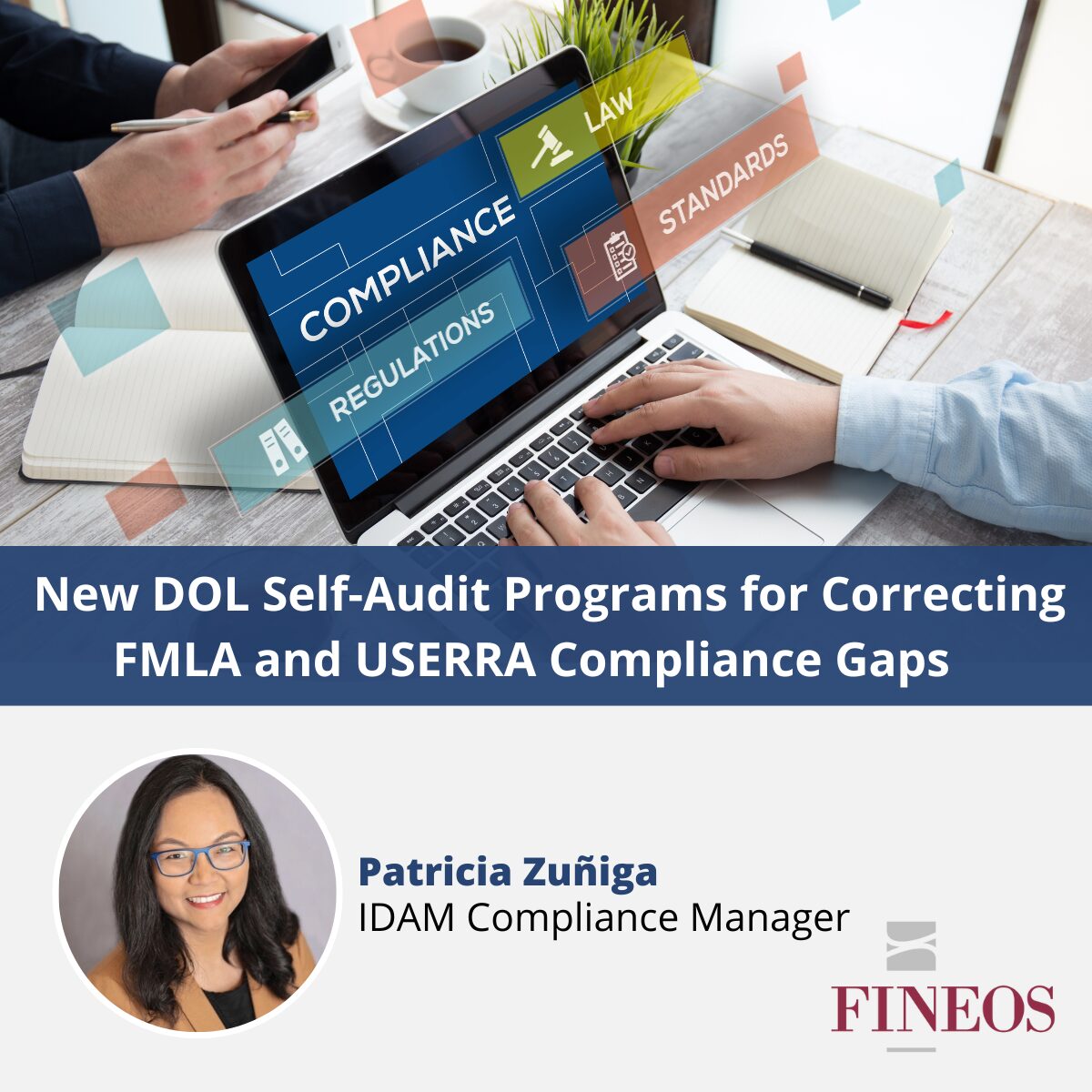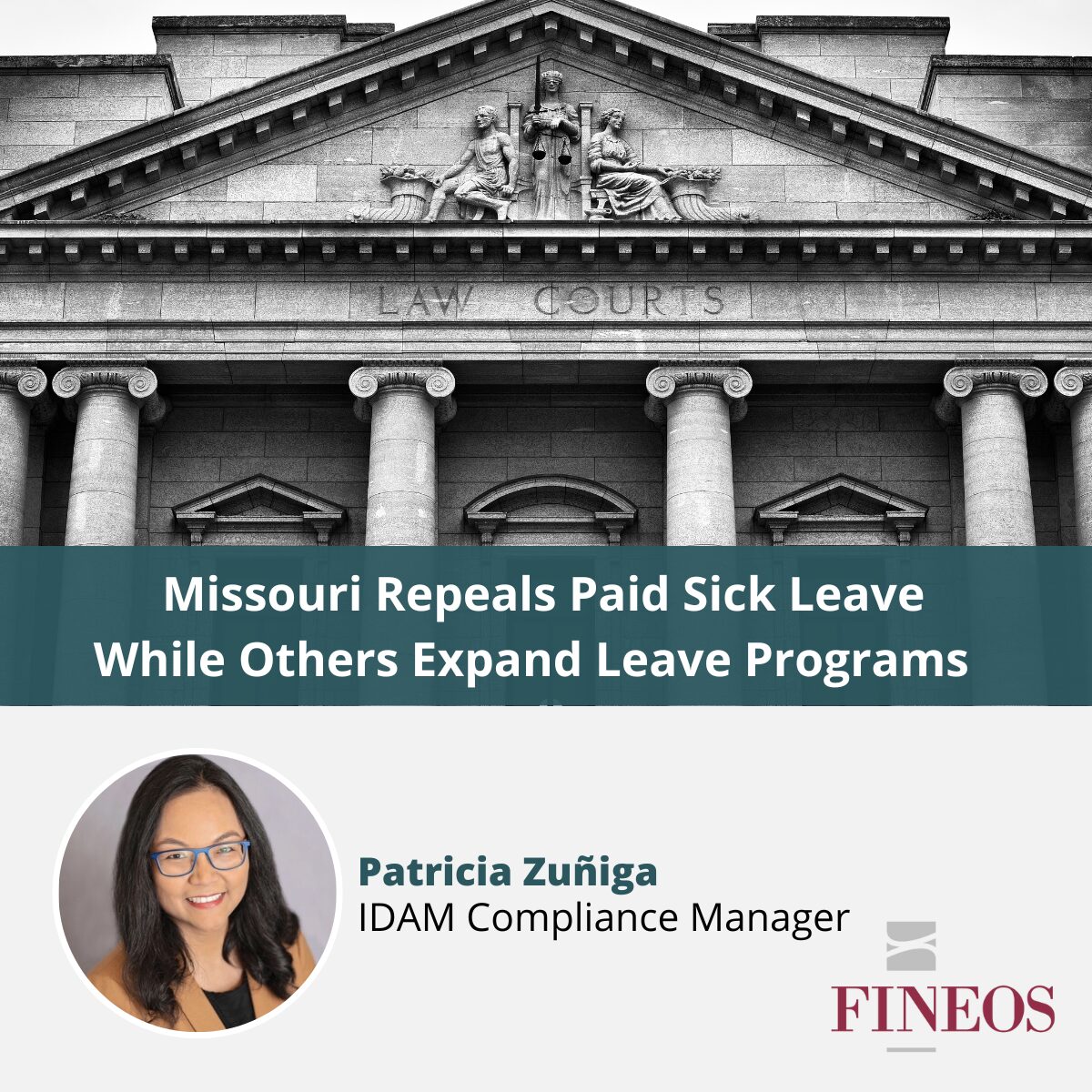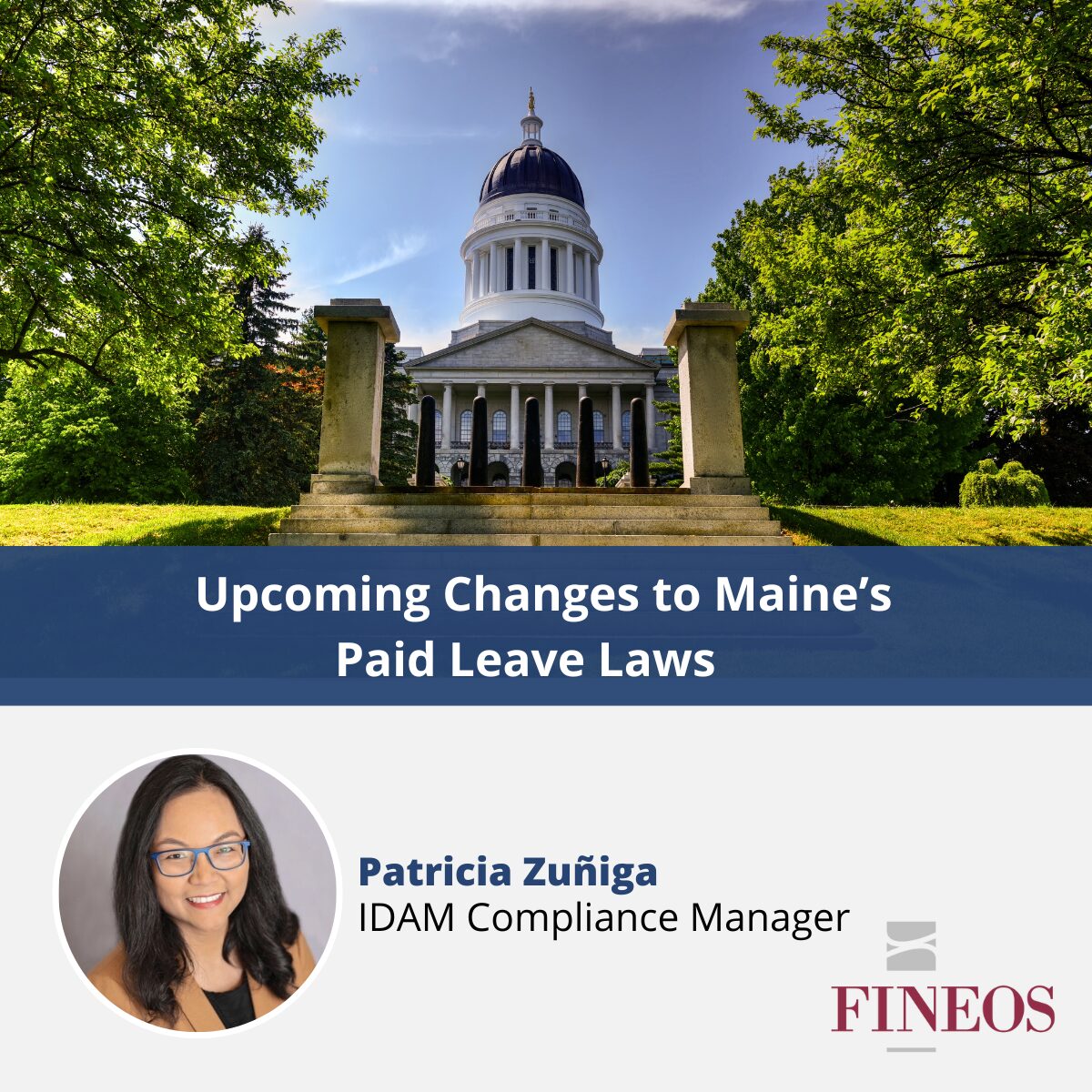Insurance carriers need agile absence management software to adapt in real-time when new leave legislation goes into effect. In this blog, you’ll learn about the latest updates to paid sick leave in Alaska, Missouri, and Nebraska and how FINEOS is helping carriers remain in compliance.
Voters in Alaska, Missouri, and Nebraska approved ballot initiatives to introduce paid sick leave (PSL) in their respective states, but they differ significantly in scope and implementation. Here are the key points to consider:
Alaska Paid Sick and Safe Leave
57% of voters in Alaska voted in favor of Measure No. 1, which provides workers with paid sick leave, gradually raises the state’s minimum wage to $15 per hour by July 1, 2027, and protects them from being forced to attend employer-sponsored political or religious meetings unrelated to their job.
When: Effective July 1, 2025
What:
- Employer Applicability: Employers with 15 or more employees must provide one hour of PSL for every 30 hours worked, up to a maximum of 56 hours in a year. Employers with less than 15 employees must provide at least one hour of PSL for every 30 hours worked, up to a maximum of 40 hours in a year.
- Employee Eligibility: Employees begin to accrue PSL following the start of their employment or July 1, 2025, whichever is later. An employee may use accrued PSL as it is accrued. Exempt employees are assumed to work 40 hours, unless the employees’ normal work week is less than 40 hours in which case PSL accrues based upon that normal work week. If an employee is rehired by their previous employer within six months of the date of separation of employment, their previously accrued and unused PSL should be immediately reinstated. Employees who remain employed by a successor employer retain their previously accrued and unused PSL.
- Increments of Leave: Employers can use the lesser of either hourly increments or the smallest increment that their payroll system uses to account for absences or use of other time.
- Existing Policies: Employers that already have an existing equivalent or more generous paid leave policy are not required to provide additional PSL.
- Notice: Employers must provide written notice of PSL rights to their employees 30 days after the law’s effective date or at the time of hire, whichever is later.
An employee may use PSL for:
- Medical: an employee’s mental or physical illness, injury, or health condition, need for medical diagnosis, care, or treatment, or need for preventive medical care.
- Family care: caring for a family member with a mental or physical illness, injury, or health condition, who needs medical diagnosis, care, or treatment, or who needs preventive medical care.
- Safe leave: leave from work because of domestic violence, sexual assault, or stalking of the employee or employee’s family member.
Missouri Paid Sick and Safe Leave
58% of voters voted in favor of Proposition A, which provides workers with paid sick leave, and gradually raises the state’s minimum wage to $15 per hour by January 1, 2026.
When: Effective May 1, 2025
What:
- Employer Applicability: Employers with 15 or more employees must provide at least one hour of PSL for every 30 hours worked, up to a maximum of 56 hours in a year. Employers with less than 15 employees must provide at least one hour of PSL for every 30 hours worked, up to a maximum of 40 hours in a year.
- Employee Eligibility: Employees begin to accrue PSL following the start of their employment or May 1, 2025, whichever is later. An employee may use accrued PSL as it is accrued. An employer can choose to pay out unused paid leave at the end of the year and frontload paid leave to an employee on the first day of each year. Exempt employees are assumed to work 40 hours, unless the employees’ normal work week is less than 40 hours in which case PSL accrues based upon that normal work week. If an employee is rehired by their previous employer within nine months from the date of separation of employment, their previously accrued and unused PSL should be immediately reinstated. Employees who remain employed by a successor employer retain their previously accrued and unused PSL.
- Existing Policies: Employers that already have an existing equivalent or more generous paid leave policy are not required to provide additional PSL.
- Notice: Beginning April 15, 2025, employers must display a poster that contains information about the PSL program, to be prepared by the Missouri Department of Labor and Industrial Relations. Employers must also provide written notice of PSL rights to their employees on April 15, 2025 or 14 calendar days after the time of hire, whichever is later.
An employee may use PSL for:
- Medical: an employee’s mental or physical illness, injury, or health condition, need for medical diagnosis, care, or treatment, or need for preventive medical care.
- Family care: caring for a family member with a mental or physical illness, injury, or health condition, who needs medical diagnosis, care, or treatment, or who needs preventive medical care.
- Safe leave: leave from work because of domestic violence, sexual assault, or stalking of the employee or employee’s family member.
- Public Health Emergency: closure of the employee’s place of business due to a public health emergency or an employee’s need to care for a family member whose school or place of care has been closed due to a public health emergency.
- Health Exposure: when it has been determined by the health authorities having jurisdiction or by a health care professional that the presence of the employee or family member of the employee in the community would jeopardize the health of others because of the exposure of the employee or family member of the employee to a communicable disease, whether or not the employee or family member has actually contracted the communicable disease.
Nebraska Paid Sick Leave
74% of voters in Nebraska voted in favor of Initiative 436, which provides workers with paid sick leave (also known as the Nebraska Healthy Families and Workplaces Act).
When: Effective October 1, 2025
What:
- Employer Applicability: Employers with 20 or more employees must provide at least one hour of PSL for every 30 hours worked, up to a maximum of 56 hours in a year. Employers with less than 20 employees must provide at least one hour of PSL for every 30 hours worked, up to a maximum of 40 hours in a year.
- Employee Eligibility: Employees begin to accrue PSL following the start of their employment or October 1, 2025, whichever is later. An employee may use accrued PSL as it is accrued. An employer can choose to pay out unused paid leave at the end of the year and frontload paid leave to an employee on the first day of each year. Exempt employees are assumed to work 40 hours, unless the employees’ normal work week is less than 40 hours in which case PSL accrues based upon that normal work week. If an employee is rehired by their previous employer within 12 months from the date of separation of employment, their previously accrued and unused PSL should be immediately reinstated.
- Increments of Leave: Employers can use the lesser of either hourly increments or the smallest increment that their payroll system uses to account for absences or use of other time.
- Existing Policies: Employers that already have an existing equivalent or more generous paid leave policy are not required to provide additional PSL.
- Notice: Employers must display a poster that contains information about the PSL program. Employers must also provide written notice of PSL rights to their employees on September 15, 2025 or at the time of hire, whichever is later. The poster and written notice shall be provided in English and any language that is the first language spoken by at least 5% of the employer’s workforce, as long as the Nebraska Department of Labor has provided a model poster or notice in such language.
An employee may use PSL for:
- Medical: an employee’s mental or physical illness, injury, or health condition, need for medical diagnosis, care, or treatment, or need for preventive medical care.
- Family care: caring for a family member with a mental or physical illness, injury, or health condition, who needs medical diagnosis, care, or treatment, or who needs preventive medical care.
- Public Health Emergency: closure of the employee’s place of business due to a public health emergency or an employee’s need to care for a family member whose school or place of care has been closed due to a public health emergency.
- Health Exposure: when it has been determined by the health authorities having jurisdiction or by a health care professional that the presence of the employee or family member of the employee in the community would jeopardize the health of others because of the exposure of the employee or family member of the employee to a communicable disease, whether or not the employee or family member has actually contracted the communicable disease.
FINEOS can help with your state leave programs
FINEOS will be ready to administer these new state leave programs. Using modern insurance technology solutions like the FINEOS Platform can help insurance carriers remain compliant and competitive when leave legislation is revised and new products are authorized by governing jurisdictions. Learn more about how a modern, integrated disability and absence management (IDAM) solution can help your organization adapt to this rapidly evolving market and remain in compliance.


